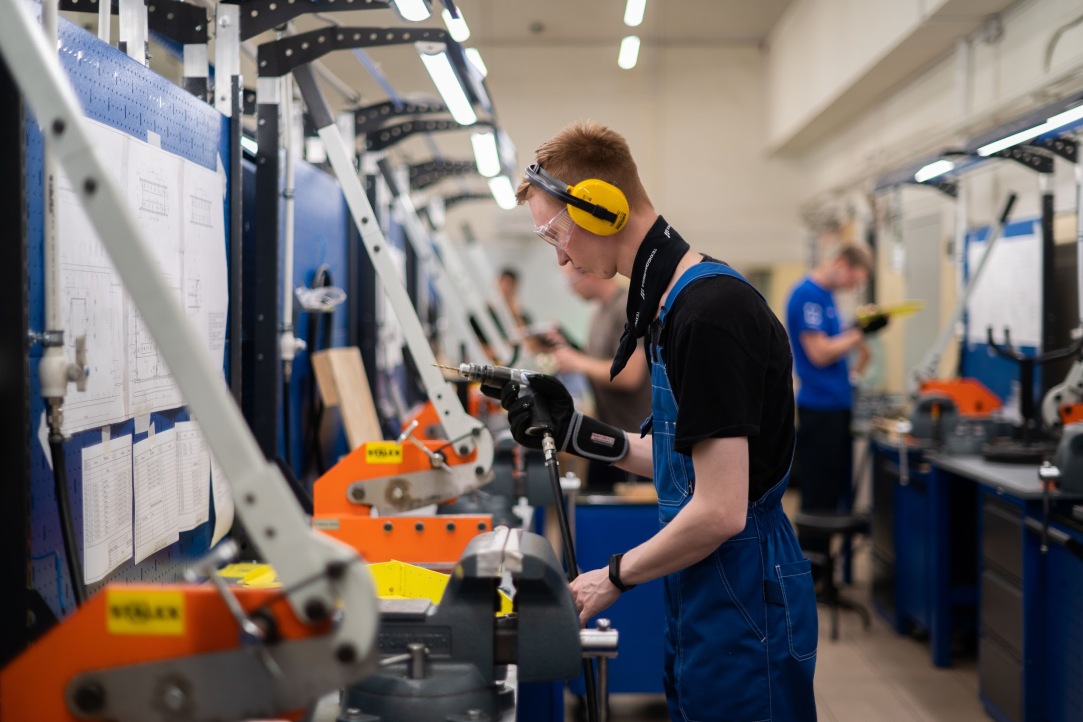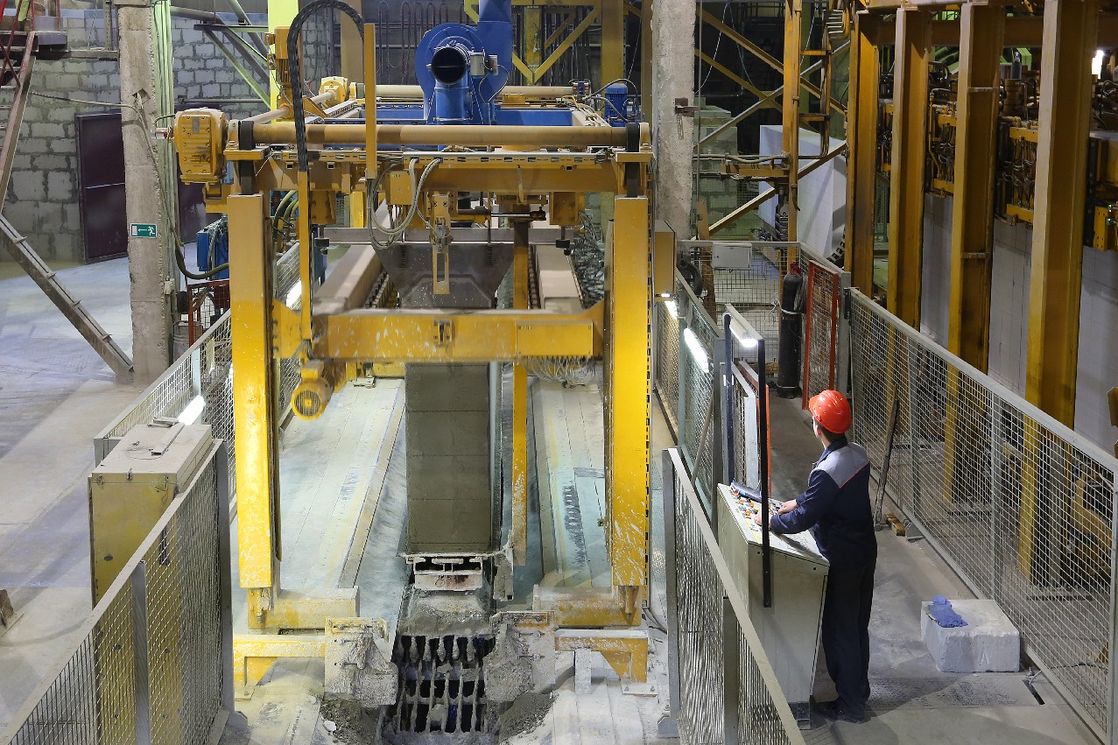Sanctions Create New Opportunities for Russian Companies

Like any crisis, the sanctions of 2022, besides problems, have created new opportunities for Russian companies. This is the conclusion that HSE University’s experts have come to. Their study results are presented in the report ‘Adaptation of Russian Industrial Companies to Sanctions: First Steps and Expectations’, prepared by HSE University for the XXIV Yasin (April) International Academic Conference.
Over a quarter of Russian companies (28%) have been able to use these new opportunities: one in ten companies (9%) has managed to increase its share in traditional markets, 7% of companies have found niches for new products, 6% have entered new markets, and 4% have attracted skilled professionals.
The study is based on a survey among manufacturing industry leaders analysing changes that have taken place since 2018—including the industrial response to the pandemic and increased international sanctions. The survey was conducted between August and November 2022 in nine federal districts, encompassing 71 regions of the Russian Federation.
According to the report authors (Yury Simachev, Andrei Yakovlev, Victoria Golikova, Nikolay Gorodnyi, Boris Kuznetsov, Mikhail Kuzyk, and Anna Fedyunina), overall, the results of 2022 have turned out to be noticeably better than initial expectations. Along with adequate response measures from the government and the Bank of Russia, this has been largely due to the high adaptive potential of Russian business. In fact, over the past 25 years, it has faced two major financial crises (1998–1999, 2008–2009) and three non-economic crises associated with restrictions related to the pandemic (2020) and sanctions (2014–2015, 2022).
At the same time, most experts agree that sanctions are rarely an effective tool for achieving foreign policy goals, the authors of the report write.
There are a number of factors that mitigate the effect of sanctions. In particular, if it is possible to geographically reorient supply chains and find new buyers, the effectiveness of sanctions drops significantly. In addition, sanctions may inadvertently stimulate the growth of domestic manufacturing sectors or promote industrialisation. At the same time, the economy as a whole, as well as its economic agents awaiting the imposition of sanctions, may have time to adapt to possible restrictions.
According to the study, 65% of manufacturing companies faced various problems due to sanctions. The key issues were the rise in cost of raw materials, expendables, and components in the domestic market (for 41% of companies), difficulties with importing necessary goods and services (for about 31% of companies), and logistical problems (for more than 22% of companies) along with problems around the import of equipment (for about 19% of companies).
The overall balance of the positive and negative impacts of sanction restrictions at the company level was negative in most cases—this was noted by the heads of 53% of all surveyed companies (or 77% of companies affected by the sanctions). The resulting effects from the impact of sanction restrictions turned out to vary depending on the nature of the companies’ integration into the global economy: they were negative in the case of importers and firms with foreign participation, both negative and positive for innovative companies, and they were positive for exporting enterprises.

Companies’ main responses to the 2022 sanctions were switching to new suppliers (22% of companies switched to foreign suppliers, 18% to Russian ones) and cost reduction (19% of companies). The latter was also a key response during the coronavirus crisis, while supplier switching was much less common in 2020-2021. Additionally, in comparison with the pandemic period, in 2022, firms increasingly began to enter new markets (10% of companies), conduct their own development of new products and technologies (8%), and reorganise their management and logistical systems (8%).
On the basis of structural modelling, the experts have been able to draw several conclusions. At the end of 2022, the revenue of enterprises integrated into global supply chains was not lower than the base year of 2019. This shows that having a wide choice of foreign suppliers and buyers contributes to higher resilience in the face of uncertainty.
Those enterprises that had already adopted digital technologies showed more flexibility in switching suppliers and were able to enter new markets more often and more readily. ‘Digitalised companies seem to be more in tune to the culture of innovation and readiness for change, which allows them to dynamically adapt to external shocks in their business environment,’ the report authors note. A higher technological level did not help in any way, but did not interfere with adaptation either; its role is practically insignificant both for revenue/employment dynamics and for structural effects at the company level. Thus, growth requires those factors that would provide dynamic adaptation, the researchers say.
The expansion of the share in the target markets was typical for enterprises that had a developed network of suppliers even before the sanctions crisis. This highlights the need to develop subcontracting networks in the Russian economy. Switching suppliers across the entire value chain, from technology and service providers to raw materials and semi-finished products, has allowed companies to move beyond their established profiles and increase product diversity.
See also:
Applications to Participate in April International Academic Conference Now Open
HSE University is now accepting proposals to present academic reports at the XXVI April International Academic Conference named after Evgeny Yasin. Applications can be submitted until December 16, 2025. The conference events will take place mainly on-site in Moscow from April 14 to 17, 2026.
24 Countries Represented at 25th Yasin International Academic Conference Held by HSE University
The Programme Committee of the 25th Yasin (April) International Academic Conference on Economic and Social Development has summed up the initial results. In 2025, 1,384 people from 24 countries and 29 Russian regions participated in the conference, with 335 of them delivering presentations.
Stuck in the Net: How Much Time Children Spend Online
On average, a schoolchild spends 48 hours a week on studies—equivalent to a six-day working week for an adult. This was highlighted by experts at the round table ‘Domains of Children’s Well-Being Evaluation for Human Potential and Evidence-Based Social Policy Development,’ held as part of the 25th Yasin (April) International Academic Conference.
Russian and Chinese Scholars Share Experience of Transformation of Doctoral Education
The Russian and Chinese postgraduate education systems originally borrowed their institutional frameworks from the Soviet Union. However, in the 21st century, they have evolved along different paths. While key performance indicators for postgraduate programmes in Russia are declining, China is seeing a rapid increase in the number of postgraduate students. These contrasting trajectories and the reforms undertaken in each country in recent decades were the focus of a roundtable discussion held as part of the 25th Yasin (April) International Academic Conference.
Nobel Laureate Proposes Solution to Markov Equilibrium Problem
In dynamic games, a Markov equilibrium involves strategies that guide players' behaviour based on the current state of the game, rather than its entire history. This approach is effective when players have access to complete information. But when uncertainty arises in the game—for instance, when players are unsure of who they are dealing with—this approach can become problematic. Eric Maskin, Nobel Laureate in Economics and Professor at Harvard University, addressed this issue in a paper presented at the XXV Yasin (April) International Academic Conference on Economic and Social Development held at HSE University from April 15 to 18, 2025.
‘The World Is Becoming More Complex and Less Predictable’: What Scientists Say about the Future
The future is now more difficult for researchers to forecast, and events that are hard to predict are playing an increasingly significant role. But there is good news too: scientists are confident that humanity will adapt to any changes. This was the focus of discussion at the International Symposium ‘Foresight in a Rapidly Changing World,’ which took place as part of the 25th Yasin (April) International Academic Conference.
Fragmentation and Bloc Formation: How the Global Economy is Changing
Sergey Dubinin, former head of the Bank of Russia and Professor of Finance and Credit at the Faculty of Economics at Moscow State University, has delivered an honorary address at the XXV Yasin (April) International Academic Conference. He spoke about the transformation of the global monetary and financial system, as well as the Russian economy.
More Children, More Happiness: HSE Experts Study Impact of Number of Children on Russians' Assessment of Happiness
Russians with children feel happier than those without children. At the same time, the number of children influences the assessment of happiness: the more children Russians have, the happier they feel. These conclusions were outlined inthe report ‘More Children, More Happiness: The Impact of the Number of Children on Russians’ Assessment of Happiness,’ presented at the XXV Yasin (April) International Academic Conference on Economic and Social Development, held on April 15–18 at HSE University. The study was conducted by Elena Churilova, Senior Research Fellow, and Dmitry Jdanov, Chief Research Fellowat HSE International Laboratory for Population and Health.
HSE Expands Cooperation with Gulf Countries
HSE University and the Centre for International Policy Research (Qatar) have agreed to collaborate in the field of social sciences, with plans for joint research, academic exchanges, and regular expert engagement. The agreement was signed during the roundtable ‘State Capacity and State Resilience in the Global South,’ held as part of the 25th Yasin (April) International Academic Conference at HSE University.
‘We Grow Old before We Become Rich’: How BRICS Countries Can Achieve Economic Growth
Due to population aging, many countries aiming for economic prosperity have limited time left to undergo economic transformation, according to the honorary report Narratives Versus Reality on Employment and Demography: How Undermining Institutions Can Push Countries Out of the ‘Narrow Corridor’ by Santosh Mehrotra of the University of Bath. The report was presented at the XXV Yasin (April) International Academic Conference.


